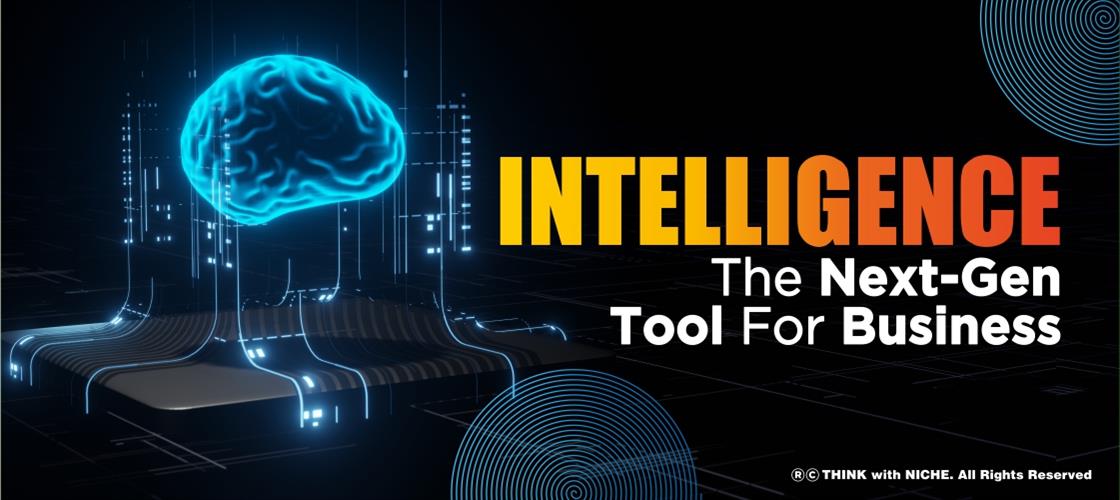Artificial Intelligence in Marketing? Get Better Customer Outreach!
Post Highlight
Many businesses and marketing departments are increasingly implementing artificial intelligence technology strategies to enhance operational efficiency while boosting customer experience. Marketers can acquire a more sophisticated, comprehensive picture of their target customers by using these platforms. The information gained from this method can then be leveraged to increase conversions while also reducing the effort on marketing staff. Let's learn more about it in the article. #TWN
Podcast
Continue Reading..
It's no wonder that Artificial Intelligence (AI) is paving the way in nearly every field where it's being used. According to the most recent figures, modern AI technology can increase business efficiency by up to 40%. With the recent rapid spread of new technologies, many industry leaders have been encouraged to move up in a more effective and sophisticated field, in which AI has entrenched itself as the most potent weapon. Organizations that have AI at their disposal will have a better chance of staying ahead of the competition in a variety of ways. Indeed, more and more companies are betting on AI marketing, which has the potential to alter the way we market.
What is Artificial Intelligence in Marketing?
AI marketing makes automated decisions derived from gathering data, data analytics, and further observations of demographic or market trends that may affect marketing activities. AI is frequently utilized in marketing initiatives where speed is critical. AI technologies employ data and customer characteristics to learn how to effectively engage with customers and then give them personalized messages at the perfect time without the need for marketing team members' intervention, ensuring optimal productivity. Many modern marketers employ AI to supplement marketing people or to handle more tactical activities that demand less human finesse.
Elements of Marketing through AI
Artificial intelligence plays a critical role in assisting marketers in connecting with consumers. The following AI marketing components comprise today's leading solutions for bridging the gap between massive volumes of consumer data being gathered and actionable next actions that can be used to future campaigns:
Machine Learning
Machine learning is powered by artificial intelligence and entails computer algorithms that can study data and improve themselves automatically through experience. Machine learning devices examine new information in the light of relevant historical data, which might advise judgments based on what has or has not worked in the past.
Big Data and Analytics
The rise of digital media has resulted in a flood of big data, allowing marketers to better analyze their efforts and properly allocate value across channels. This has also resulted in data oversaturation, as so many marketers fight to discern which sets of data are worthwhile to acquire.
AI Platform Solutions
Effective AI-powered solutions give marketers a centralized platform for managing massive amounts of data. These platforms may generate valuable marketing knowledge about your target audience, allowing you to make data-driven conclusions about ways to best approach them. Frameworks including Bayesian Learning and Forgetting, for example, can assist marketers in gaining a better knowledge of how receptive a user is to a certain marketing endeavor.
Artificial Intelligence Marketing's Main Advantages
So, how does this affect marketing departments? Marketers are becoming more interested in AI marketing as a result of the information it delivers. Let's look at some of the ways actual AI will impact marketing performance in the future months and years:
Increased Marketing Return on Investment
Marketers may use AI to change their marketing strategies by employing real-time data insights and then strategizing them. AI platforms can make smart decisions about how to spend expenditures across channels, examine top-performing ad placements, and boost the marketing program's worth. If implemented appropriately, AI systems will boost marketing ROI by utilizing intelligent budget distribution and spending criteria.
Highly Personalized Delivery of Content
Marketers can take raw data and specifically target a whole other height using AI. Audience analysis can go beyond demographics to understand consumers on an individual level. Marketers may now utilize AI to discover new clients or purchasers as well as provide the most relevant content to them. It is especially useful for increasing the impact of retail and e-commerce. There isn't much a clever marketer can't accomplish with machine learning algorithms, big data, and AI.
Campaign Monitoring and Measurement Have Been Improved
The huge amounts of data generated by today's marketing initiatives might be challenging to organize and analyze. Marketers will find it difficult to report on and substantiate campaign performance as a result of this. Marketers may use AI-enabled dashboards to get a full view of the aspects of campaigns that perform, reproduce those patterns, and change campaigns accordingly to experience enhanced campaign success. These solutions provide expanded reporting insights in addition to intelligent campaign analytics.
Improved Marketing Team Efficiency
AI can perform data analysis far faster than humans. Allow artificial intelligence solutions to handle time-consuming activities, freeing up time for your marketing staff to concentrate on what counts – strategy. Marketers may utilize AI to make better marketing decisions and increase overall performance by using real-time information.
AI in Marketing Examples
Whether you're new to artificial intelligence or have years of work experience, it's not always easy to see AI in action. Here are some common scenarios for artificial intelligence in marketing today.
Internet Search Engines
AI has been used by Google and Bing for many years. Google introduced RankBrain in 2015, which utilizes machine learning to supply much more meaningful search results. Bing launched Intelligent Search in 2017 to provide more concise answers and pictures to user queries.
Semantic search, as well as natural language processing, assist users in finding more necessary data on search engine results listings, even when their queries are misspelled or broad. For example, if a user searches "brown shirts," they may get a variety of results, such as the top 10 brown shirts under $30, winter wear trends, or methods to end up saving money. This type of knowledge can assist retailers in optimizing their products and services for search so that new customers can find them.
Strategizing, creating, and marketing content
Artificial intelligence is crucial in the modification of content strategies. It assists marketing teams in selecting relevant topics to improve search engine optimization and conduct competitive research.
AI in marketing also includes content generation. Natural language processing (NLP) is an artificial intelligence (AI) technique that takes data and organizes it into a written story that sounds like it was written by a human. NLP can be applied to create content varying from blog posts and white papers to even social media postings, depending on the program. The Associated Press and The Washington Post are among the well-known news organizations that use NLP. Retailers can also utilize this technology to generate product descriptions and build landing pages at a lesser cost.
Chatbots
Chatbots employ natural language processing (NLP) to simulate human discussions via text. They simplify conversations, provide 24/7 service, and free up time for social networking sites and community managers to focus on more complex discussions. Marketers can utilize chatbots to
• Provide specific content to users
• Assist with customer support
• Generate new connections
Sellers use SMS or Facebook Messenger chat technology to assist customers in establishing their product recommendations – no human contact is required. Chatbots are appealing to people of all ages, not only the younger generation. Millennials and baby boomers both recognize their usefulness in them.
Product Costing
Dynamic pricing based on AI has become a science. Companies use data to evaluate demand in the market and competition and then use that information to impact prices in real-time. When the price of an Uber increases after an event, for example, that's dynamic pricing based on artificial intelligence at action, or "surge pricing," as Uber refers to it.
This system can also utilize data to predict how much a buyer is willing to spend on a product. With this knowledge, artificial intelligence may compare a retailer's pricing to that of its rivals to see where they stand. Have you ever found a great price on Amazon? Their third-party sellers frequently employ algorithmic costing to compete with one another, allowing consumers to get the best price.
Algorithmic Advertisements
Data and predictive data analysis can assist retailers in creating ad campaigns for specific consumers. AI can identify the best moment of the day to showcase an ad and even alter bidding strategies for advertisements.
Retailers are personalizing advertisements based on customer info. Data gathered from programmatic campaigns can then be used to improve your paid search as well as content marketing strategies.
Conclusion
Artificial intelligence has advanced by leaps and bounds in recent years, and it is already shaping the future of marketing. It is up to you to incorporate this technology into your company. But one thing is certain: AI is our future. If you want to run a successful online company in the upcoming years, you must use AI-powered marketing and solutions.
If you liked reading this article about Artificial Intelligence, we have some more articles for you.
Unlock Artificial Intelligence with these Courses

